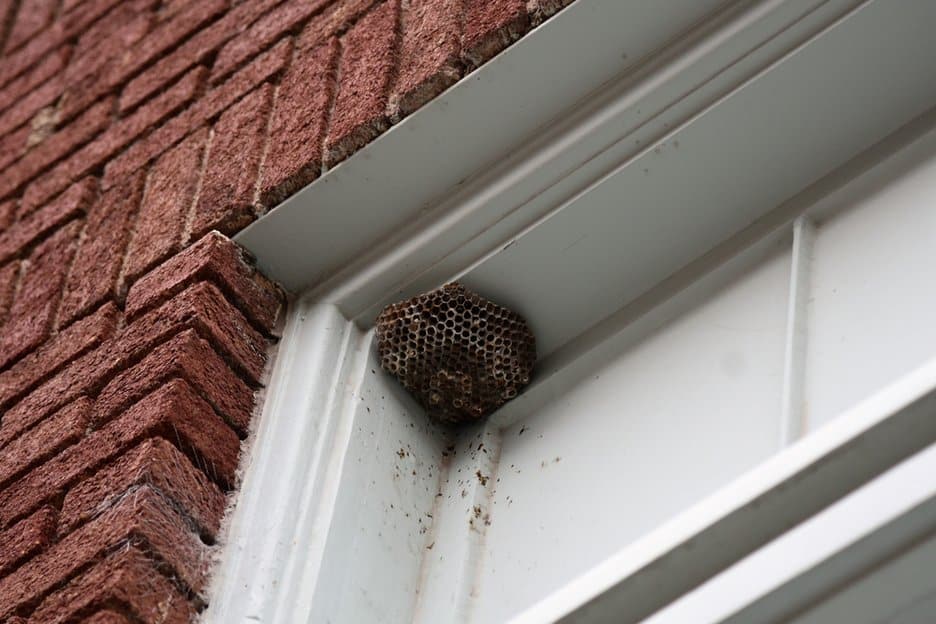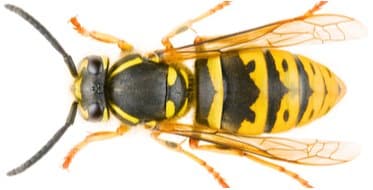Wasp Control Solutions
Wasps Nest & Wasp Nest Removal
Need to get rid of a wasp nest on your premises? Ultimate Pest Control provides an industry-leading wasps nest control solution. Our technicians' service Dublin, Kildare, Wicklow, and Leinster. We provide service to residential and commercial properties. Wasps will attack if disturbed. Therefore, a nest should be treated by a professional. Our technicians treat nests safely and effectively in under one hour. Post-treatment, we provide wasp nest removal.
If you would like to learn more about wasps, why not head over to our blog. We answer the top 10 questions we get regarding wasps.
Wasps Nest Solutions:
- Inspection to Locate Nest
- Wasp Control Treatment
- Wasps Nest Removal
- Follow-up Service if necessary
- Same Day Service
- Effective Treatment in Under 1 Hour

All About Wasps
In Ireland, there are a few species of wasps. Although, the Common Wasp is the most dominant.
Wasps tend to become a problem in the summer months. By that time a nest can have inhabited 5,000 wasps. And the nest can be larger than a football. However, if there is a heatwave, wasps reproduce faster. So, nests can contain up to 10,000 wasps following a heatwave.
However, the nest-building starts in the late Spring. Initially, the Queen constructs a small nest. Roughly the size of a golf ball. Once complete, she lays her first batch of eggs. Around 20 or so. She feeds the larvae until they develop into adult wasps.
After the adults develop, they take over the work. Namely, building the wasps nest, and feeding the larvae. Meanwhile, the Queen's sole responsibility is to lay eggs. Consequently, she can now lay up to 300 eggs per day.
Wasps tend to make their nests in concealed spots. For example in trees or bushes. They also build them under eaves. Indoors, wasps favour roof spaces and attics. And even wall cavities.
Species of Wasps Found in Ireland
The Common Wasp:
- Yellow and Black in Colour
- Adults measure between 12 – 18mm
- Queens' measure up to 20mm

The Dangers of a Wasp Infestation
A wasp infestation can be dangerous. A sting is the wasps' form of defence. They will only sting if they perceive a threat. Or if they feel their nest is under threat. When a wasp stings, it releases a pheromone. Immediately alerting the colony to a potential threat. If you mess with one, you mess with them all!
In most cases, a wasps sting is a minor injury. But in rare cases, they can be more serious. In fact, they can be fatal. But only to people with a wasp sting allergy. The majority of people experience some pain and swelling.
How to Treat a Wasps Sting:
- Place a cold flannel or ice pack on the site
- If needed, use painkillers to soothe any pain
- An antihistamine will reduce swelling
In case of allergy immediately contact an Ambulance/Doctor/Hospital.
Do you have a Wasp Infestation?
Signs of a Wasp Nest:
Seeing multiple wasps indicates a nearby nest. If it is early Summer, you won't notice many. As the nest is still quite small. But as the Summer progresses, the nest grows. Therefore, the amount of waps increases. Wasps like to nest in hidden areas. So a nest might not be easy to find.
How to Get Rid of a Wasp Nest:
Getting rid of a wasps nest is dangerous. Especially without the correct PPE. And insecticides. Many DIY wasp treatments, just anger the wasps. Which causes them to attack. It is safer to get a professional wasps nest removal treatment.
Can I Prevent a Wasps Nest?
Rest assured there are ways to prevent a serious wasps nest problem!
Firstly, ensure your premises is proofed. In other words, cut off potential entry points. Look for any gaps in doors, floors, and vents. Immediately seal up any gaps you find. Regardless of how small. The best time to do this is before Spring. Before the Queens start nest building. Ultimate Pest Control provides Proofing Services. Secondly, ensure windows and doors are kept closed.
It is also worth doing a nest check in Spring. Check-in at all the places wasps are likely to settle. For instance, bushes and trees in your garden. Additionally, attics and eaves. In Spring, the nests are so small. As a result, they are easier to treat.
